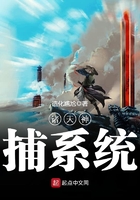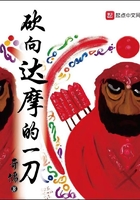THE BEGINNING OF CIVILISATION IN THE VALLEY OF THE NILE
THE history of man is the record of a hungry creature in search of food. Wherever food was plentiful, thither man has travelled to make his home.
The fame of the Valley of the Nile must have spread at an early date. From the interior of Africa and from the desert of Arabia and from the western part of Asia people had flocked to Egypt to claim their share of the rich farms.
Together these invaders had formed a new race which called itself "Remi" or "the Men" just as we sometimes call America "God's own country." They had good reason to be grateful to a Fate which had carried them to this narrow strip of land.
In the summer of each year the Nile turned the valley into a shallow lake and when the waters receded all the grainfields and the pastures were covered with several inches of the most fertile clay.
In Egypt a kindly river did the work of a million men and made it possible to feed the teeming population of the first large cities of which we have any record. It is true that all the arable land was not in the valley. But a complicated system of small canals and well-sweeps carried water from the river-level to the top of the highest banks and an even more intricate system of irrigation trenches spread it throughout the land.
While man of the prehistoric age had been obliged to spend sixteen hours out of every twenty-four gathering food for himself and the members of his tribe, the Egyptian peasant or the inhabitant of the Egyptian city found himself possessed of a certain leisure. He used this spare time to make himself many things that were merely ornamental and not in the least bit useful.
More than that. One day he discovered that his brain was capable of thinking all kinds of thoughts which had nothing to do with the problems of eating and sleeping and finding a home for the children. The Egyptian began to speculate upon many strange problems that confronted him. Where did the stars come from? Who made the noise of the thunder which frightened him so terribly? Who made the River Nile rise with such regularity that it was possible to base the calendar upon the appearance and the disappearance of the annual floods? Who was he, himself, a strange little creature surrounded on all sides by death and sickness and yet happy and full of laughter?
He asked these many questions and certain people obligingly stepped forward to answer these inquiries to the best of their ability. The Egyptians called them "priests" and they became the guardians of his thoughts and gained great respect in the community. They were highly learned men who were entrusted with the sacred task of keeping the written records.
They understood that it is not good for man to think only of his immediate advantage in this world and they drew his attention to the days of the future when his soul would dwell beyond the mountains of the west and must give an account of his deeds to Osiris, the mighty God who was the Ruler of the Living and the Dead and who judged the acts of men according to their merits. Indeed, the priests made so much of that future day in the realm of Isis and Osiris that the Egyptians began to regard life merely as a short preparation for the Hereafter and turned the teeming valley of the Nile into a land devoted to the Dead.
In a strange way, the Egyptians had come to believe that no soul could enter the realm of Osiris without the possession of the body which had been its place of residence in this world.
Therefore as soon as a man was dead his relatives took his corpse and had it embalmed. For weeks it was soaked in a solution of natron and then it was filled with pitch. The Persian word for pitch was "Mumiai" and the embalmed body was called a "Mummy." It was wrapped in yards and yards of specially prepared linen and it was placed in a specially prepared coffin ready to be removed to its final home. But an Egyptian grave was a real home where the body was surrounded by pieces of furniture and musical instruments (to while away the dreary hours of waiting) and by little statues of cooks and bakers and barbers (that the occupant of this dark home might be decently provided with food and need not go about unshaven).
Originally these graves had been dug into the rocks of the western mountains but as the Egyptians moved northward they were obliged to build their cemeteries in the desert. The desert however is full of wild animals and equally wild robbers and they broke into the graves and disturbed the mummy or stole the jewelry that had been buried with the body. To prevent such unholy desecration the Egyptians used to build small mounds of stones on top of the graves. These little mounds gradually grew in size, because the rich people built higher mounds than the poor and there was a good deal of competition to see who could make the highest hill of stones. The record was made by King Khufu, whom the Greeks called Cheops and who lived thirty centuries before our era. His mound, which the Greeks called a pyramid (because the Egyptian word for high was pir-em-us) was over five hundred feet high.
It covered more than thirteen acres of desert which is three times as much space as that occupied by the church of St.
Peter, the largest edifice of the Christian world.
During twenty years, over a hundred thousand men were busy carrying the necessary stones from the other side of the river--ferrying them across the Nile (how they ever managed to do this, we do not understand), dragging them in many instances a long distance across the desert and finally hoisting them into their correct position. But so well did the King's architects and engineers perform their task that the narrow passage-way which leads to the royal tomb in the heart of the stone monster has never yet been pushed out of shape by the weight of those thousands of tons of stone which press upon it from all sides.















